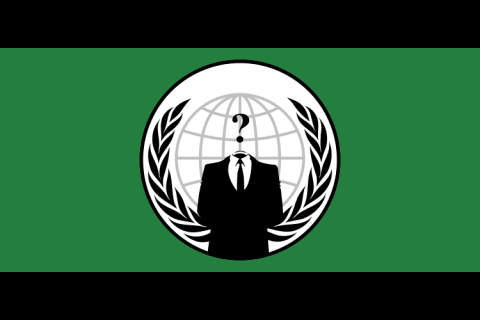As the reach of government has gradually extended over society, we’ve been increasingly fascinated with those individuals that operate beyond the law. Be it John Brown in his famous raid on Harper’s Ferry, bootleggers during the prohibition, or even revered characters like Batman, people who break laws they deem unjust have always held a unique place in culture. Though such actions are by no means universally accepted, it often takes civil disobedience to uphold and perhaps define a higher moral standard.
In a lot of ways, the web collective ‘hacktivist’ group Anonymous fits this bill. As its name suggests, the members of the group are by and large anonymous web users, connected only through the Internet. Their activities range from over-stressing websites through distributed denial-of-service (DDoS) attacks to collecting and leaking confidential documents, even accessing Bank of America and Syrian Ministry e-mail servers.
Though Anonymous has existed in some sense since 2003, born in the depths of beloved Internet community 4Chan, only recently has the group received widespread media attention. Largely, this growth is a result of the political climate of today—Anonymous helped bring widespread attention to the Occupy Wall Street movement, with Anon’s signature Guy Fawkes mask coming to represent OWS as a whole. Moreover, the group has been a primary force of opposition against Internet censorship such as ACTA, SOPA, and PIPA (all anti-piracy agreements that could significantly alter the face of the internet) and the recent shutdown of Megaupload. Even if you’ve never heard of Anonymous, you’re likely familiar with SOPA due to the Internet blackout in January, in which the group played an integral role.
While the aforementioned support of OWS and the SOPA blackout were not particularly controversial, what makes Anonymous so intriguing is its use of anonymity to break the law with few repercussions. The shutdown of Megaupload, for example, led to attacks on media and government websites that left them crippled for days. The group has attacked the web presence of the Tunisian, Algerian and Egyptian governments in solidarity with the Arab Spring movement as well as major banks and credit card companies to protest their freezing of WikiLeaks donation channels. Anonymous has even been known for its cyber-assaults on the much-reviled Westboro Baptist Church.
Perhaps the biggest obstacle for Anonymous lies in its namesake—the anonymity of the group makes it difficult for truly coordinated action to occur, and it often seems that out-of-character actions are associated with the group. For example, the group was recently linked to attempted extortion from anti-virus software provider Symantec in the face of a leak of some of the company’s source code. Attacks on Westboro Baptist Church also sent a mixed message; while many members acknowledged the Church’s right to free speech, the site faced DDoS attacks attributed to Anonymous regardless.
In some ways, the PR struggle of Anonymous mirrors that of Occupy Wall Street in its extreme populism. Without a clear message, it’s difficult for the group to take a firm hold; while alleged spokesperson Trent Peacock once commented that Anonymous was merely “doing it for teh lulz [sic],” the group often represents itself as a sort of egalitarian vanguard against corruption and corporate interests.
At times, sure, Anonymous can seem like a disorganized mess. The very nature of the group’s anonymity means that anyone can associate their actions with it to get a little extra publicity (a quick check of Google Trends shows that searches for the word “anonymous” have spiked in the past year or so). In a way though, this isn’t a false attribution—the group really does serve as a blanket term for whoever chooses to use the anonymity of the Internet to mask their activity.
Despite the group’s shortcomings, there’s such an inherent sense of justice in some of their actions that it’s hard to stand against them. In the case of the government and bank cooperation to blockade funding to WikiLeaks it felt a lot like the public was having the wool pulled over their eyes. Enter Operation Payback, the group’s mass DDoS attacks on banks worldwide, as well as the Swedish prosecutor’s office. In a time when channels of freedom begin to feel throttled, the Internet is the final frontier of people’s action against injustice.
Perhaps it’s best to take any failures allegedly linked to the group in stride and appreciate the fact that they are often looking out for the masses. In a time of all time lows in congressional approval, massive organized protests against corporate influence on government and threats of internet censorship from democratic governments worldwide, it’s reassuring to know that there is at least some sort of organized presence looking out for our freedoms when established systems don’t. •










